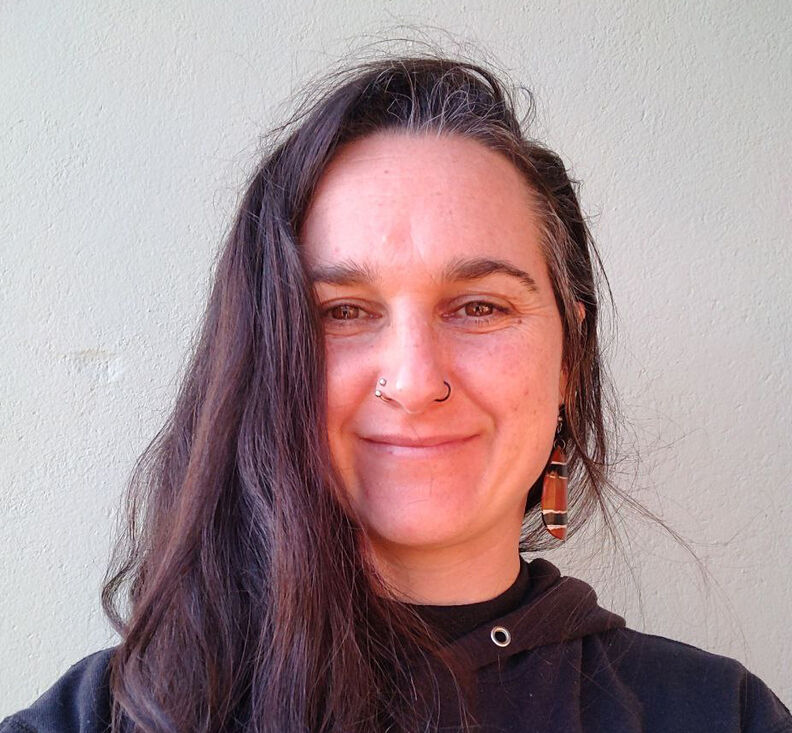Entrevista a la Marian Berihuete con motivo del Congreso AHEAD
Dr Marian Berihuete is an archaeologist specialised in the study of fruits, seeds, and the remains of plant reserve organs. Her main research question moves around the understanding of how wild plant management took place within ancient societies and the development of models of interpretation for a better understanding of plant management in the past. Through her work, she is expanding the understanding of the role of women in prehistory. Dr Berihuete got a degree in History (UAM, 2004), and then a PhD in Prehistoric Archaeology (UAB, 2010). Postdoc at the University Hohenheim (Germany) I came back to Catalonia, where she has been a BP AGAUR and a MSCA fellow at IPHES-CERCA. Since January 2023 Dr Berihuete has been a “Ramón y Cajal” researcher at the Prehistory Department, at UAB. Her seminar will provide an overview of the perceived role of women in prehistory and how books and articles investigate or neglect female representation in prehistory. The seminar will also discuss how this impacts how we perceive gender roles today.
Hi Marian, which do you think are some of the ideas/myths still prevalent when thinking about men and women in prehistory?
I think one of the main myths or preconceptions regarding men and women differences and roles in prehistory is to think that cultural gender was determined and shaped in the same way as it is today and that every society since the beginning of humankind has organized in the same way.These ideas have led to repeatedly misinterpret the archaeological record (for instance the sex of buried individuals or the economic organization of given human groups). This is not only extremely actualist and wrong, but also serves the purpose of accepting the current role division and prevalent gender understanding in westernized societies. It is the perfect framework for legitimating the status quo and resisting against any eventual change.
Of these, which ones can be proved wrong with scientific evidence?
Coming back to one of the examples mentioned above, a number of tombs considered to have belonged to a man because of the grave goods recovered, have been proved to be of female chiefs, warriors or hunters. For me that is enough to watch out when making assumptions about gender in the past based on current opinions and facts.
As a researcher, at which point did you realize women in prehistory were wrongly pictured?
I grew up in the 80’ and luckily for me many teachers and adults gave me the sense of equal opportunities among boys and girls. I experienced some boundaries around that, but in general I was pretty confidence about equality. It wasn’t until I was studying in the university (History) that I realized that we were talking the whole time about men, there where only scarce and anecdotical mentions to women as actors of the past, and even very few female researchers and authors were mentioned. I started to feel disconnected from the stories (and in consequence the History) that I was being told about, specially when professors used the term men as a generic for all humans.
You work as an archaeobotanist: can you tell us briefly what it is, and how you think archaeobotany can help to show the role of women in prehistory more accurately?
Archaobotanists study the relationships between humans and the plants in their environment. There are different archaeobotanical remains that provide information about different aspects. I am a carpologist, which means that I study fruits and seeds mainly. My focus goes beyond learning which plants were available in each period and concentrates in assessing which species were chosen by human communities and how they were used, which gives us more information about social organization and general economic system.
Archaebotany is crucial to show the role of women and other members of the group bsides men, not because women only gatherer or only women gathered, but because until plants came in the picture, only hunting and tool making came in the picture, and both activities were strongly associated with males of the group. Independently of who did what in the past, there was only one important thing on the table and all the group members that were considered not to be involved were invisible.
Finally, do you think female researchers have equal opportunities in academia today, or do they face a problem of representation, as did women of the past?
I would like the answer to be yes... Of course, there are many factors influencing this but not only there are representation problems (specially in some areas or career stages) but also of fair opportunities. Humans are not 100% equal and if we are offered the exact same opportunity, are we being treated under a fair equality of opportunity?
Which is more serious, this lack of fair opportunity extends beyond sex and gender. There are too many subjacent inequalities (e.g., in class, race, or nationality), that also affect in an intersectional way making equality of opportunities a meaningless term.
I wouldn’t like to end the interview with this message. I honestly believe that it is possible to achieve a social and political organization based in equality, it is only that we are not yet there.
Thanks for doing such an inspiring an impactful job,
We are looking forward to attending your seminar at AHEAD!

